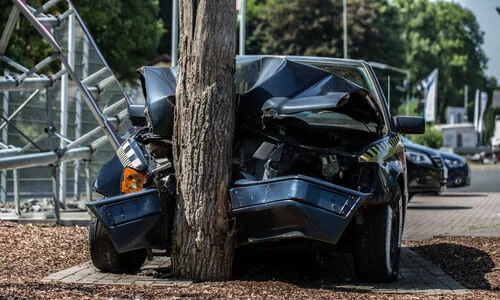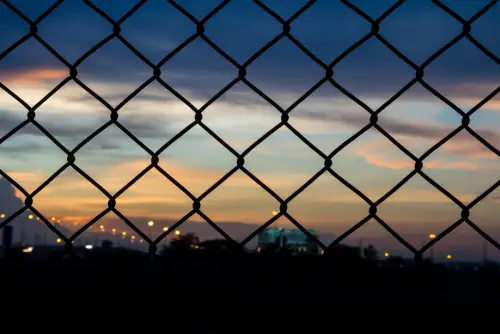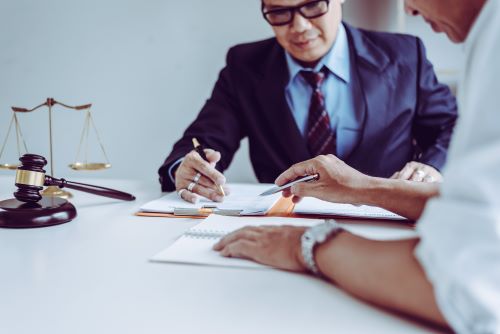 Getting into a car accident, even if it’s minor, can be a scary and confusing experience. In the aftermath of an accident, it is important to try to keep calm and complete a few simple tasks, if you are able.
Getting into a car accident, even if it’s minor, can be a scary and confusing experience. In the aftermath of an accident, it is important to try to keep calm and complete a few simple tasks, if you are able.
The most important thing to do is to take care of yourself and the other people in your car, but there are other steps you should take in order to stay safe, follow the law, and prepare for a potential insurance claim.
If you have been injured in a car accident, reach out to an experienced car accident attorney. An attorney from Singh Ahluwalia Attorneys at Law can be on your side during every step of the process, from collecting important medical documents to interviewing witnesses.
Having an experienced car crash attorney in Fresno or throughout California at your side means that you can focus on your recovery while your lawyer focuses on your car accident injury case.
To schedule a free, confidential, no-obligation consultation with one of the compassionate, experienced attorneys at Singh Ahluwalia Attorneys at Law, call us at (559) 878-4958 or fill out our online contact form. We look forward to hearing from you!
What to Do After Exchanging Insurance Information
Many people know the first few steps to take immediately following a wreck: call 911 for an officer to respond to the scene and request an ambulance for anyone who is hurt. Then, when it is safe to do so, exchange insurance information.
Once you have exchanged insurance information with the other driver(s) involved in the wreck, the next thing you will want to do is to document the accident as well as you can. You should try to collect the following information:
- The name and badge numbers of the police officers on the scene.
- Find out how and where to obtain a copy of the police report so that you’ll be able to provide it to your insurance company when they ask you for it.
- Take pictures of every car involved, especially capturing the damage from multiple angles. You can also take pictures of license plates to ensure you have that information. You may be able to share these pictures with your insurance company as part of the claims process.
- Collect the names of everyone who was involved in the accident, including any passengers in the other vehicle(s).
- Talk to any witnesses and collect their names and contact information.
What Should I Do Immediately Following a Car Accident?
Before worrying about exchanging information, the very first thing you should do if you’ve been in a car accident is to check yourself for any injuries.
If you have been injured, call 911 or have someone else do this for you. If you are seriously injured, it is important to try to move as little as possible so as not to injure yourself further.
If you have not been injured, or if you aren’t injured too badly to move, the next thing you should do is check on the well-being of the other people involved in the wreck. If anyone is injured and the paramedics have not already been called, make sure to call them as soon as possible.
With serious injuries, time is of the essence, and it is essential that medical personnel arrive at the scene as soon as possible.
After you have evaluated everyone for injuries, if possible, move yourself to safety. This may look like moving to a sidewalk or over to the side of the road.
If you are able, and your car is safe to drive, you may want to try to move your car so that it is not causing a hazard. However, you and your passengers are the top priority in this situation, so do not risk further injury by trying to move your car unless it is safe to do so.
Exchange Insurance Information
After you have ensured that you, your passengers, and the other people involved in the accident are unharmed, it is important for you to exchange information with all other involved parties. When exchanging information, make sure to gather the following:
- The driver’s full name and contact information
- The driver’s insurance information, including what company and the policy number
- The driver’s license information and license plate number
- Make, model, and color of vehicle
- Location of accident
When exchanging information with the other driver(s) involved in the accident, steer clear of assigning fault or blame for the accident. The insurance companies will review the information submitted to them, as well as the police reports, and will determine who was at fault.
What Else Should Be Done at the Scene of the Accident?
If you have checked over yourself and your passengers and found everyone to be unharmed, there are some other steps that you can take to minimize the stress of dealing with the aftermath of the accident.
Even if no one was injured, it is important that you stay at the scene of the accident and call the police and report the accident. Even a fender-bender, which might seem minor, should be reported to the police.
Depending on where you are and how severe the accident was, police officers may or may not be dispatched to the scene. If they are, they will fill out an accident report and document the scene.
If they do not respond, you can document the scene as best as you can and go to the police department to file your own report. Many times, insurance companies will rely on these reports to help in the claims process.
While you are waiting for help to arrive, try to do so as safely as possible.
Turn on the hazard lights on your car and set out road flares, if you have them, to warn other cars of your presence. Be mindful of where you are standing, and try to stay as far away from the vehicles on the road as possible.
When Should I Notify My Insurance Company About the Accident?
You will want to notify your insurance company about the accident as soon as you are in a safe place and have received an initial medical evaluation.
If you call them at this time, they may be able to help walk you through the steps you’ll need to take to ensure that you have as much information as possible, which will make the claims process go much more smoothly.
In fact, if your vehicle is damaged and needs to be taken to a body shop, your insurance can help set up the transfer to a certified body shop.
Of course, when notifying your insurance company about the accident, you should not apologize or claim fault for the accident. Simply relay the facts of the accident, submit the required paperwork, and allow the insurance company to work to determine who was to blame.
Note that if you decide to file a claim with the liability insurance of another driver, you should still inform your own insurer about the wreck. They can commit resources to your case, help you investigate the accident, and assign as much financial liability as possible to the at-fault party.
After you notify your insurance company about the accident, they will assign an adjuster to your case, who will work to establish fault as well as inspect the damages and determine an estimate of the repair costs.
In some cases, you may be reimbursed for the cost of repairs, or your vehicle may be considered totaled, in which case the insurance company would pay you out for the value of your vehicle.
While your own insurer can assist in many ways with an accident claim against the liable parties, know that they do not share the exact same priorities as you. They may expect you to settle for the first offer or capture statements that could get you dropped from their coverage.
For this reason, it is highly recommended to refer to an experienced attorney prior to getting involved deeply in the claims process, whether with another insurer or your own.
What Else Should I Do After the Accident?
After every accident, you will want to seek medical help as soon as possible. Even if the accident is minor and you feel as though you are uninjured, it is still important to have a doctor check you out.
Some injuries can take time to show up, such as soft tissue injuries, and some injuries will need to be diagnosed by a doctor, such as minor head injuries.
In addition to getting the medical attention you may need, seeing a doctor after an accident gives you proof that you suffered injuries as a result of the car accident.
If you ever need to go to court to receive compensation for your injuries, it will be imperative that you have a medical record that ties your injuries to the accident in question.
How Can an Accident Attorney Help Me?
Being involved in a serious accident can be a scary and stressful time. You should be able to focus on healing and resting so that you can put the accident behind you and move on with your life.
However, that can be difficult to do when you have to deal with the insurance companies, gathering information and working to receive fair compensation for your losses.
That is where we at Singh Ahluwalia Attorneys at Law can come in. Instead of trying to navigate a confusing and stressful situation by yourself, we will work for you and with you to help relieve some of your burdens.
We can take care of most things — from filing paperwork, interviewing witnesses, and talking to the insurance companies in question. We will ensure that your case is moving forward while allowing you to take the time you need to heal and begin to move on with your life.
If you have been involved in a car accident, contact one of the experienced car accident attorneys at Singh Ahluwalia Attorneys at Law by calling us at (559) 878-4958 or getting in touch with us by filling out our online contact form.
We are standing by and are looking forward to helping you during this difficult time. Schedule your free, no-obligation consultation with us today!


